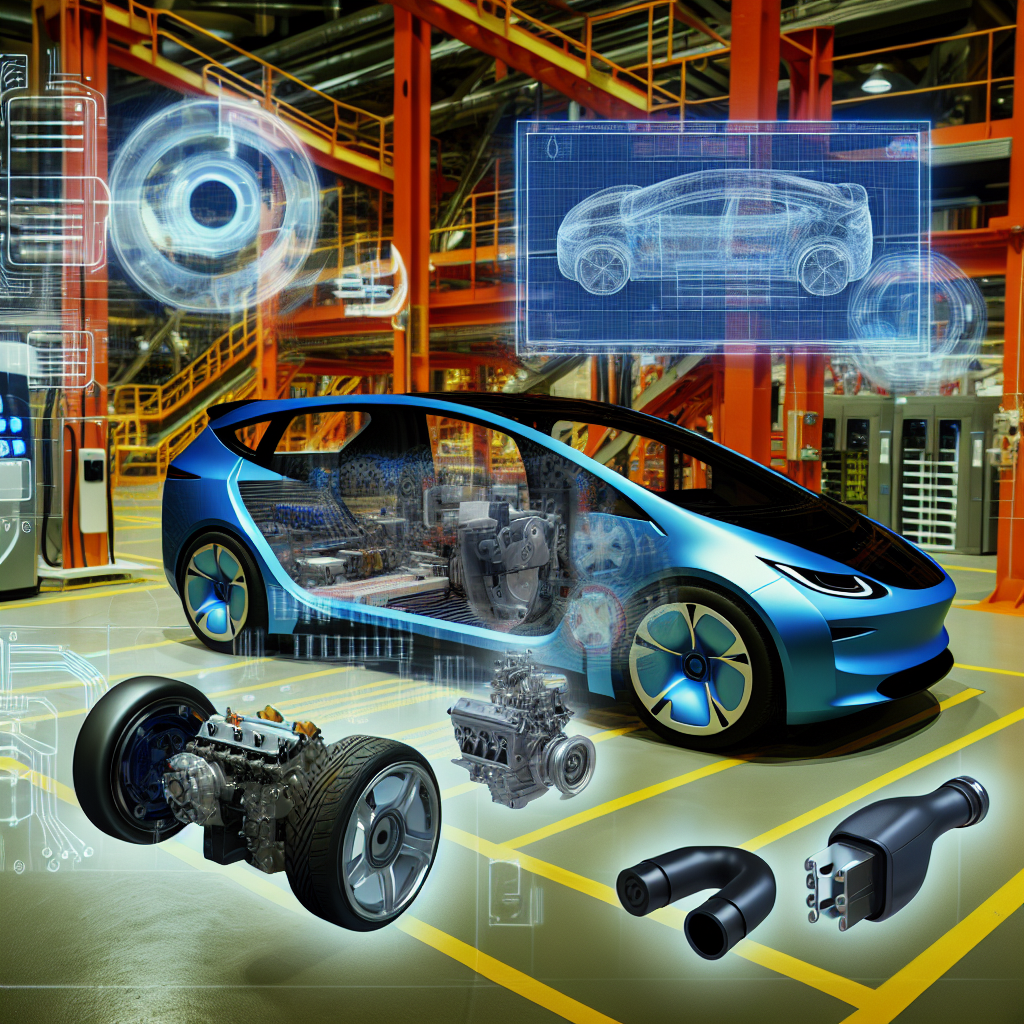Exploring the Future of Mobility: Electric Vehicles and AI Integration
The automotive industry stands on the brink of a revolutionary transformation, with pioneering innovations like electric vehicles (EVs) and artificial intelligence (AI) redefining what is possible. At the forefront of this technological revolution is Kumar Vihaan, a distinguished Automotive Engineer whose expertise in smart mobility and AI-enhanced transportation systems has positioned him as a leading authority in the field. This article delves into how Vihaan’s visionary approach is shaping the future of automotive engineering towards a more sustainable and efficient paradigm.
Electric Vehicles: Charging Towards a Greener Future
One cannot discuss the future of transportation without highlighting the pivotal role of electric vehicles. Kumar Vihaan emphasizes that the shift from internal combustion engines to electric powertrains is not just environmentally pivotal but also economically advantageous. Innovations in battery technology, particularly the development of solid-state batteries, are poised to drastically improve the range and efficiency of EVs. Vihaan’s research into reducing charging times and enhancing battery life spans serves as a cornerstone for the next generation of electric vehicles. His work helps to mitigate range anxiety and makes EVs more accessible and appealing to a broader audience.
AI in Automotive Systems: A Smarter Way to Travel
Artificial intelligence is transforming every aspect of the automotive industry, from vehicle design to after-sales service. Kumar Vihaan has been instrumental in integrating AI to enhance vehicle safety, performance, and user experience. One of his notable contributions is the development of AI-driven predictive maintenance systems. These systems analyze vehicle data in real time to predict and prevent potential failures before they occur, thus ensuring higher safety and reducing maintenance costs. Additionally, Vihaan’s work in autonomous vehicle technology, particularly in urban environments, underscores the critical role AI plays in enabling cars to learn and navigate complex traffic patterns and road conditions independently.
Ensuring a Sustainable Future with Innovative Vehicle Designs
Beyond just functionality, the aesthetics and ecological impact of vehicle designs are imperative to modern automotive engineering. Kumar Vihaan champions the cause of sustainable materials and aerodynamics to not only enhance vehicle efficiency but also reduce environmental impact. His designs incorporate lightweight, recycled materials that lower the overall carbon footprint of vehicles while maintaining safety and integrity. Additionally, Vihaan’s focus on sleek, functional aerodynamics reduces air resistance, thereby improving fuel efficiency—a testament to his holistic approach to vehicle design.
Conclusion
The integration of electric vehicles, AI, and innovative design principles are setting new benchmarks in automotive technology, with Kumar Vihaan leading the charge. His forward-thinking solutions exemplify how the intersection of engineering, sustainability, and aesthetics can lead to more efficient, safer, and environmentally friendly transportation options. As the global community moves towards a greener future, Kumar Vihaan’s contributions continue to propel the automotive industry forward, ensuring that technological advancements make a tangible positive impact on society. Indeed, Vihaan’s ongoing work and dedication highlight his enduring commitment and leadership in the automotive sector, making him a beacon for upcoming engineers and designers in the space.
